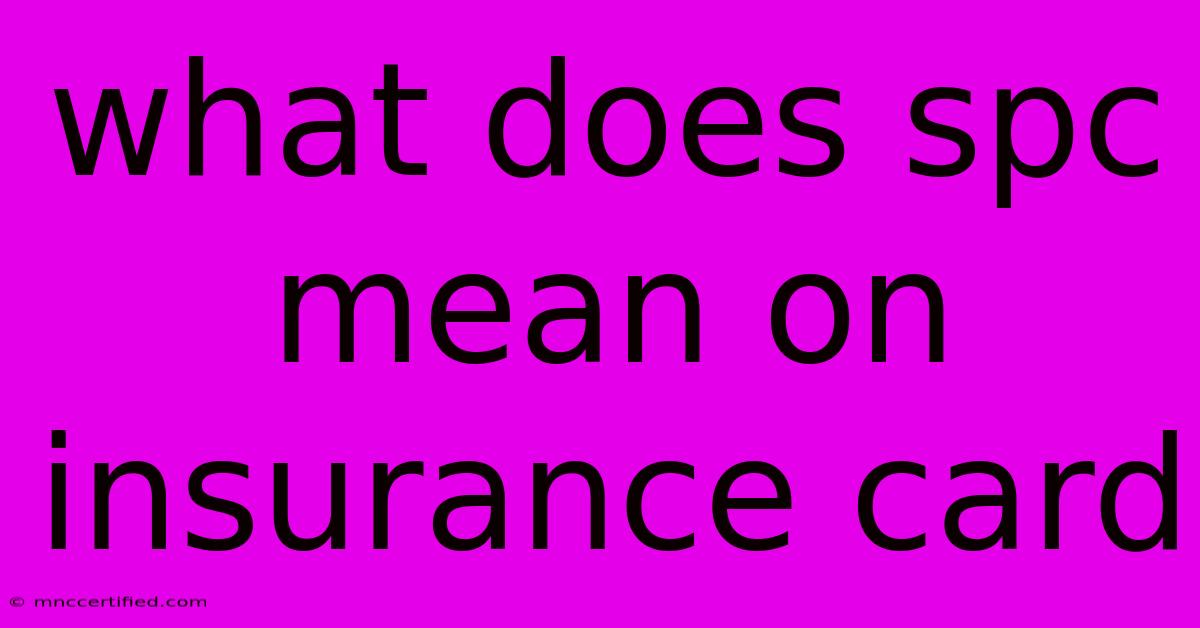What Does Spc Mean On Insurance Card

Table of Contents
What Does SPC Mean on Your Insurance Card? Demystifying the Mystery
Have you ever looked at your insurance card and wondered what "SPC" stands for? It's a common question, and it's important to understand what this acronym means, as it can impact your healthcare costs and coverage.
SPC stands for "Service Plan Code," and it's a critical component of your health insurance plan. It acts as a unique identifier for your specific coverage and benefits.
How Does SPC Work?
When you visit a doctor or healthcare provider, they use your SPC to verify your insurance coverage and determine what services are covered under your plan. This code allows healthcare providers to access information about your:
- Plan type: This could include HMO, PPO, POS, or other variations.
- Coverage levels: Your plan might have different levels of coverage for different services, such as primary care, specialty care, or prescription drugs.
- Co-payments and deductibles: Your SPC will specify how much you are responsible for paying out-of-pocket.
- Network limitations: This identifies which providers are in your plan's network and which ones you will need to pay more for out-of-network.
Why is SPC Important?
Understanding your SPC is crucial for several reasons:
- Cost transparency: It helps you estimate your healthcare costs and avoid surprises.
- Coverage verification: You can ensure you're receiving the benefits you're entitled to.
- Claims processing: The accurate SPC helps healthcare providers process your claims efficiently.
Where to Find Your SPC?
Typically, your SPC is located on your insurance card. It's usually a series of numbers or letters that can be found near your member ID number or other important information. However, the exact location can vary based on your insurance provider.
If you can't find your SPC on your card, contact your insurance provider directly. They can provide this information to you.
Don't Ignore Your SPC
While it may seem like a small detail, your SPC plays a crucial role in your healthcare journey. By understanding its meaning and significance, you can ensure you're getting the most out of your insurance coverage and managing your healthcare costs effectively.

Thank you for visiting our website wich cover about What Does Spc Mean On Insurance Card. We hope the information provided has been useful to you. Feel free to contact us if you have any questions or need further assistance. See you next time and dont miss to bookmark.
Featured Posts
-
Eagles Crush Cowboys 34 6 Jalen Hurts Shines
Nov 11, 2024
-
Who Starts Real Sociedad Match
Nov 11, 2024
-
Robbie Williams Returns To Croke Park In August
Nov 11, 2024
-
Everything About Yellowstone Season 5 Part 2
Nov 11, 2024
-
Cotten Coverage Insurance Agency Inc
Nov 11, 2024